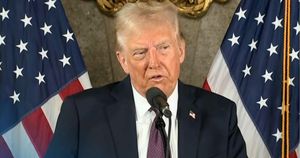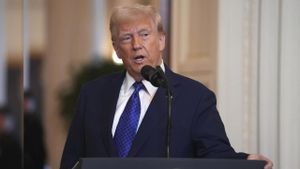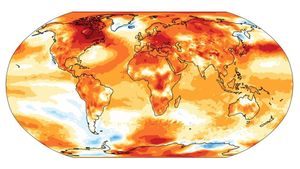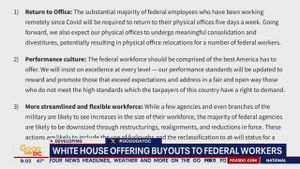Global stock markets are facing significant declines as concerns over new import tariffs imposed by the United States have sparked fears of potential trade wars. The financial world is reeling from the impact of these tariffs, particularly among export-oriented companies such as auto manufacturers and tech firms.
Market observers have noted substantial losses attributed to the increasing likelihood of trade conflicts, which has rattled investors’ confidence. Investors weighing the potential effects of these tariffs on the economy have reacted sharply, leading to heightened volatility across European and US markets.
Specifically, the Dow Jones is projected to open with losses of around 600 points—an alarming statistic for the world’s leading financial index. This anticipated drop reflects deep anxiety about how American trade policy could affect European exports, pushing financial markets to react unfavorably.
According to De Telegraaf, this escalation of tensions is particularly heavy for the automotive and technology sectors, which have historically been reliant on smooth transatlantic trade relations. Automotive manufacturers, already facing various supply chain challenges, find themselves under additional pressure as duty impositions loom large. The concern is not just theoretical; it poses real ramifications for earnings and stock valuations.
With the euro and cryptocurrencies both experiencing sharp declines, investors are shifting their portfolios, likely seeking safer investments amid the turmoil. Gold, on the other hand, has surged to record levels as it is traditionally viewed as a safe haven during economic uncertainty.
Overall, the financial service provider FlowTraders has noted increased activity and profitability due to the highly volatile market environment. The firm capitalizes on market fluctuations, and the current climate offers ample opportunities for trading.
These turbulent market conditions underline the interconnectedness of global economics and trade. Investors remain on high alert, closely monitoring developments surrounding US trade policies and their direct bearings on the European market. The ramifications of these tariffs could lead to broader impacts on international trade and global economic growth.
The trade partnerships established over decades are now at risk, causing ripple effects across sectors hinged on reliable exports. Companies, particularly those exporting to the US, are bracing for what could be significant shifts due to changing trade dynamics.
Looking beyond the immediate market responses, analysts are debating the potential long-term effects of these tariffs. Trade disputes can lead to prolonged periods of uncertainty, dissuading investment and affecting growth forecasts. The looming threat of retaliatory tariffs raises the stakes even higher for industries already grappling with stiff competition and fluctuational market demands.
While companies develop strategies to navigate through potential new trade barriers, it remains to be seen how the overall sentiment of fear and volatility sires investor decisions moving forward. The markets’ health relies not merely on numbers but on the faith of businesses and consumers alike—that faith currently shaken by ambiguous trade prospects.
It’s clear the financial world is watching with bated breath as new developments could trigger significant shifts—not just for individual companies, but for entire industries and, by extension, global trade practices.



